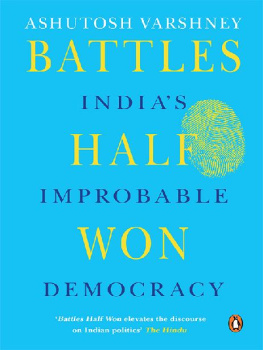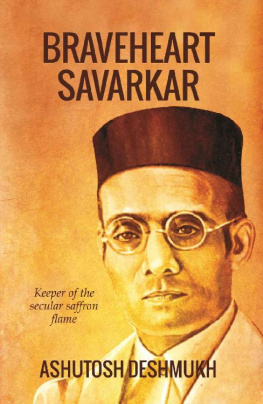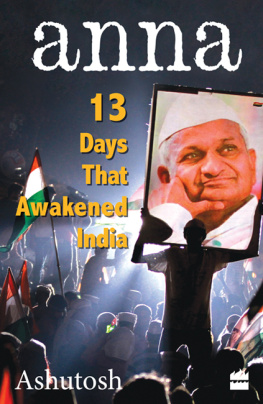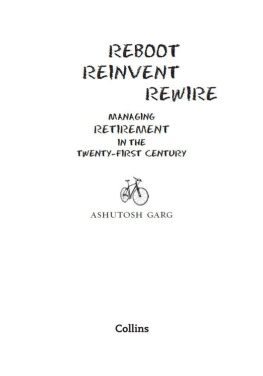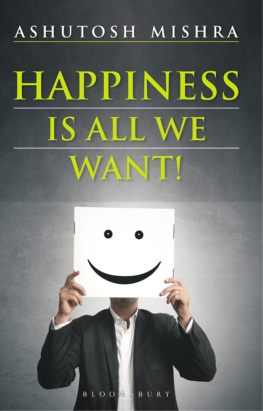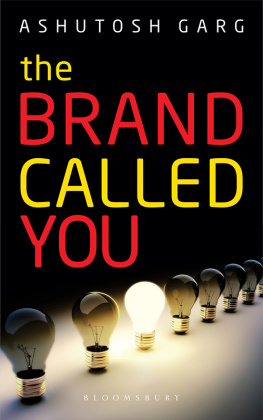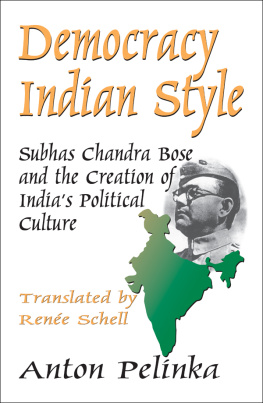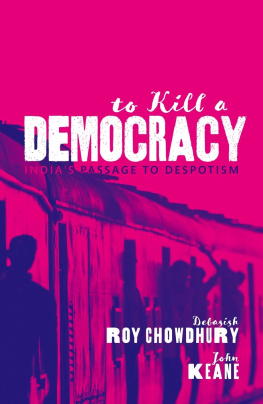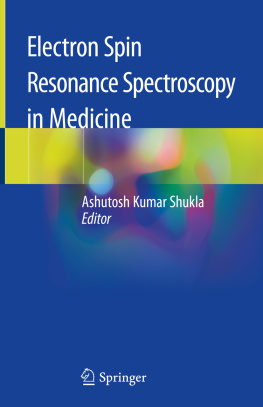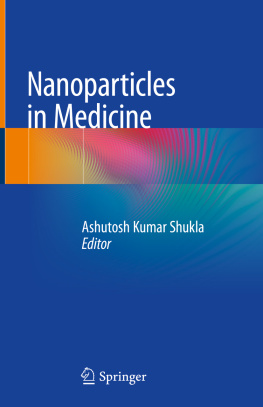Ashutosh Varshney
BATTLES HALF WON
Indias Improbable Democracy
Contents
PENGUIN BOOKS
BATTLES HALF WON
Born in India, Ashutosh Varshney is Sol Goldman Professor of International Studies and the Social Sciences, Brown University, where he also directs the India Initiative. Previously, he taught at Harvard and the University of Michigan, Ann Arbor. His books include Ethnic Conflict and Civic Life: Hindus and Muslims in India , Democracy, Development, and the Countryside: UrbanRural Struggles in India and India in the Era of Economic Reforms. His honours include the Guggenheim and Carnegie awards and the Gregory Luebbert Prize.
He is a contributing editor for the Indian Express , and his guest columns have appeared in many newspapers, including the Financial Times.
Praise for the Book
Sauteed with insights of top-of-the-shelf scholars in political science, sociology and economics, his freshly-minted prose in the refurbished essays published earlier in top academic journals reminds one of pentimento in painting, where images painted over by the artist become starkly translucent, revealing an earlier design trapped under the layers of the present work. Whatever it is, Varshney, in his masterly Tocquevillian tone, has reaffirmed that India that is Bharat is perpetually being reconstituted by politics alone Financial Express
Battles Half Won elevates the discourse on Indian politics by grounding its cause-and-effect relationship to democracy in empirical claims and sharp analyses The Hindu
Varshney exudes a kind of intellectual self-confidence that enables him to escape a familiar failing of most professional political scientists, especially those who research and analyse the Indian political landscape, characterised by an inexplicable inability to remain unintimidated by the political correctness of the week... It is this refreshing autonomy that makes this collection of articles a sobering read Biblio
A dense, many-layered book... the academic will find it useful for the wealth of data it carries; for the lay reader, many of its pages will be eye-openers Book Review
Ashutosh Varshney draws on his best recent work [here]... to produce a book of enduring value. It takes us on wide ranging, theoretically sophisticated and deeply researched engagements with major topics in Indian politics... While Indias battles may be only half won, we are given good reasons to believe that battles will continue to be won and that its improbable democracy will persistLloyd I. Rudolph and Susanne H. Rudolph, Professors of Political Science Emeritus, University of Chicago
More than six decades after Indias Independence, its democracys resounding resilience is the conundrum that Ashutosh Varshney sets out to examine. In the process he has written a masterly book that combines scholarship, acute powers of analysis and great linguistic style, which makes it a pleasure to read even as it forces one to thinkKaushik Basu, Senior Vice President and Chief Economist of the World Bank, and C. Marks Professor of International Studies, Cornell University
Ashutosh Varshney is a world-class scholar of Indian politics. His writings are erudite and insightful... This collection of his updated essays deserves to be read widelyAtul Kohli, David K.E. Bruce Professor of International Affairs and Professor of Politics and International Affairs, Princeton University
To Vibha and Kartik
List of Tables and Figures
Tables
Figures
Preface
For political science, which is my disciplinary home, Indias democracy is a baffling phenomenon. Theories predicted democracys demise in India, but that has not happened. Indeed, the opposite has transpired. Democracy is now firmly institutionalized. Elections are the only way to come to power; governments are openly and freely challenged by a whole host of actors, institutions, and organizations; incumbents routinely lose power in freely contested elections. Several inadequacies remain, but much has been achieved.
The aim of these essays is twofold. Not only do I seek to convey my understanding of why, in a highly counter-theoretical way, Indias democracy has survived, but I also analyse the achievements and failures of Indian democracy. In the process, the interaction of democracy with caste, religion, language, and economy features widely in the book. Indias democracy is shaped by these social and economic factors and, in turn, it influences them.
The essays presented here cover a period of twenty years of writing. With the exception of the first chapter, all chapters were originally published as articles, mostly in scholarly journals. While the original argument remains intact in each essay, all essays have been significantly updated for this volume. As far as possible, repetition has been avoided, though some foundational ideas are bound to figure prominently in several essays.
My understanding of Indian democracy has emerged out of a scholarly college formed seamlessly since my days as a student at Jawaharlal Nehru University (JNU) and Massachusetts Institute of Technology (MIT). At JNU, Sudipta Kaviraj, now at Columbia, greatly shaped my understanding, though I was never formally his student. At MIT, the late Myron Weiner mentored me with remarkable intellectual commitment and grace. Since starting my American career as a professor, my principal institutional homesHarvard, Michigan, and Brownhave turned out to be stimulating intellectual sites, but they have not been my only sources of inspiration. As my career evolved, an invisible college of scholarly interaction emerged. Debating and critiquing in seminars and conferences, and reading drafts and published work, in addition to field research, generated new ideas.
For the arguments presented in this volume, I would especiallyand thankfullylike to acknowledge intellectual exchanges over the last two decades with Amit Ahuja, Kanti Bajpai, Jagdish Bhagwati, Jonah Blank, Marshall Bouton, Kanchan Chandra, Pradeep Chhibber, Anis Dani, Jorge Dominguez, Sumit Ganguly, Anna Grzymala-Busse, Joshua Gubler, Stephan Haggard, Robert Hardgrave, John Harriss, Patrick Heller, Ronald Herring, Stanley Hoffmann, the late Samuel Huntington, Christophe Jaffrelot, Niraja Jayal, Rob Jenkins, Stathis Kalyvas, Atul Kohli, Margaret Levi, Daniel Levine, Roderick MacFarquhar, Scott Mainwaring, James Manor, Pratap Mehta, Uday Mehta, Mick Moore, James Morone, Ashis Nandy, Deepa Narayan, Phil Oldenburg, Robert Putnam, Swati and Ramesh Ramanathan, Biju Rao, Sanjay Reddy, Lloyd and Susanne Rudolph, Jeff Sachs, Teresita Schaefer, James Scott, Amartya Sen, Rajath Shourie, Bhrigu and Prerna Singh, Eswaran Sridharan, Alfred Stepan, Ashley Tellis, the late Myron Weiner, Rina Williams, and Yogendra Yadav. Not all are, or were, India specialists, but their intellectual curiosity and questioning contributed to greater rigor, or greater breadth, in arguments.
At Penguin, this volume went through several editors. Finally, Kamini Mahadevans wisdom, tenacity, and meticulous reading brought the volume to fruition and significantly influenced its final shape. It has been a pleasure to work with her. Poulomi Chakrabartis research assistance has been exemplary. My heartfelt thanks!
Providence, Rhode Island
1 October 2013
I
Democracy
1
The Odyssey of an Improbable Democracy




